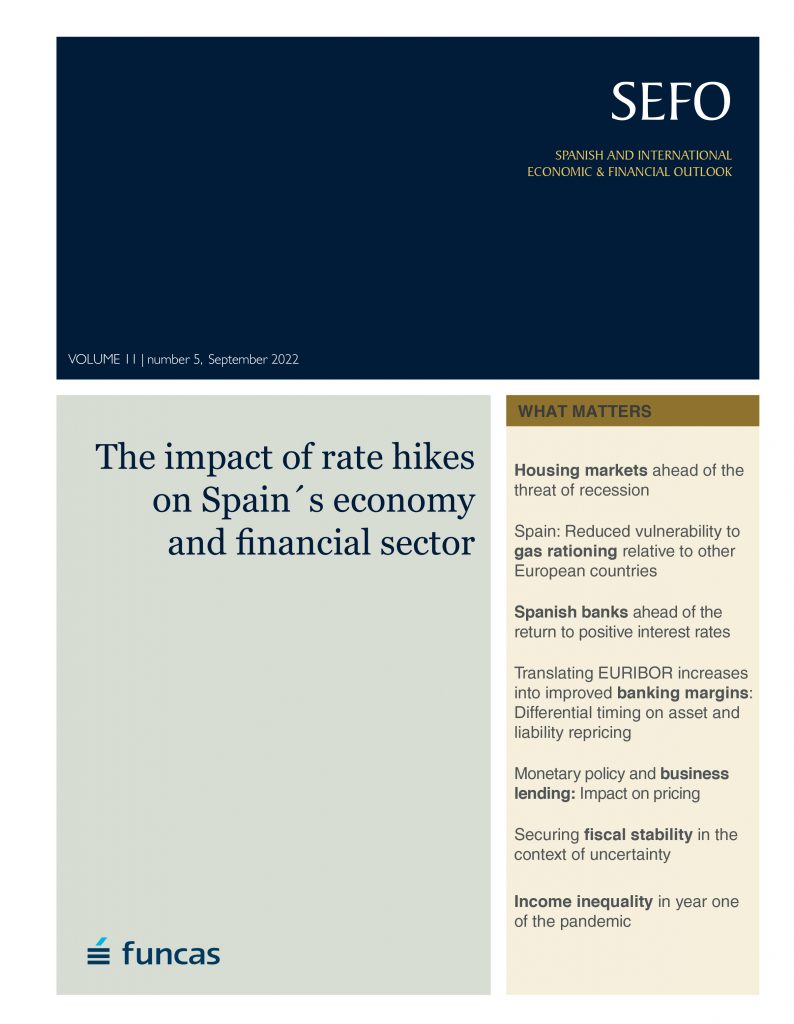The impact of rate hikes on Spain´s economy and financial sector
Fecha: septiembre 2022
SEFO, Spanish and International Economic & Financial Outlook, V. 11 N.º 5 (September 2022)
Index
Decisive policy action in response to the pandemic at the EU and Spanish level has been more effective than measures taken to tackle the Great Recession; yet, recent support measures have clouded the outlook for fiscal stability. Ensuring compliance with the European fiscal rules and securing a path towards debt sustainability in the future will require defining today the reforms and targets needed to realign public revenue with expenditure.

